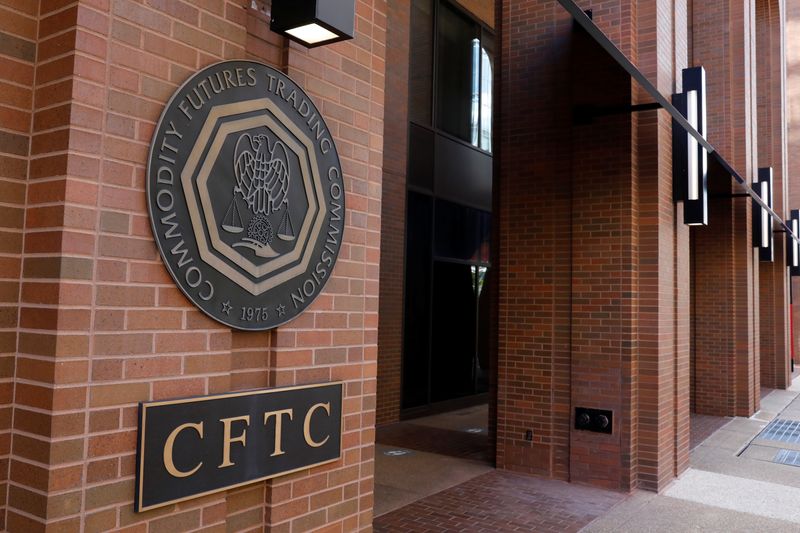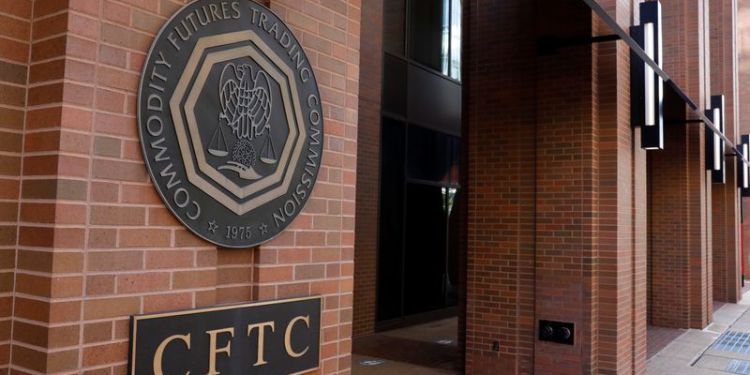
© Reuters. Signage is seen outside of the US Commodity Futures Trading Commission (CFTC) in Washington, D.C., U.S., August 30, 2020. REUTERS/Andrew Kelly/Files
By Chris Prentice
WASHINGTON (Reuters) -A U.S. regulator handed a record reward of almost $200 million in a whistleblower case, with sources familiar with the matter identifying the recipient as a former Deutsche Bank (DE:DBKGn) employee.
The U.S. Commodity Futures Trading Commission (CFTC) announced the award on Thursday, without disclosing details about the whistleblower or the case. It said the award was for “nearly $200 million”.
Two sources told Reuters the whistleblower had previously worked for the German bank.
A Deutsche Bank spokesperson declined to comment.
In the past decade, authorities globally have levied multibillion-dollar fines and pursued criminal charges against banks and traders for banding together to rig global benchmarks, most notoriously the London Interbank Offered Rate (LIBOR).
Law firm Kirby (NYSE:KEX) McInerney LLP said in a statement its client scored the record bounty after providing extensive information and documents in 2012 that “catalyzed” investigations by the CFTC and a foreign regulator into benchmark manipulation.
David Kovel, the whisleblower’s attorney from Kirby McInerney LLP, said: “The whistleblower award amount may seem shocking but it’s because the ability to manipulate and make huge profits is shocking. It follows from the misconduct.”
The law firm also did not name the whistleblower.
U.S. lawmakers recently passed legislation to keep the CFTC’s whistleblower program afloat. The Wall Street Journal reported in May that the agency’s whistleblower program was at risk due to a large expected payout to a former Deutsche Bank executive related to its $2.5 billion Libor settlement.
A spokesperson for the CFTC declined to comment, citing agency policy.
The amount, the largest for any government whistleblower program, was “mind-blowing”, Erika Kelton, an attorney with Phillips & Cohen LLP who has represented several whistleblowers in the past, said in a statement.
Source: Investing.com





















